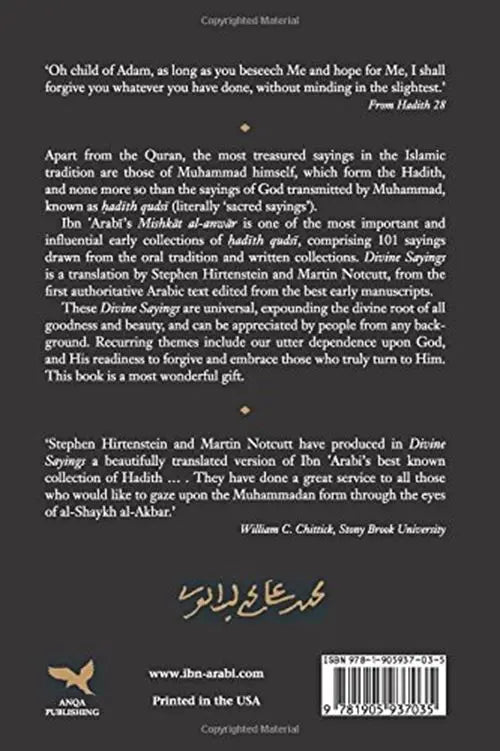About The Book
A collection of 101 hadith sayings, this work is one of the most important and influential early collections of hadith Qudsi. Falling into three categories, the first 40 sayings each have a full, unbroken chain of transmission that goes back to God through the medium of the Prophet Muhammad.
The second category are sayings mostly taken from well-known written collections. The final section is drawn from similar books, with Ibn 'Arabi adding one extra hadith, orally transmitted. Comprised of a full introduction explaining the meaning of Hadith, the text stresses the importance of this tradition in Ibn 'Arabi's writing.
About The Author
Muhyiddin ibn Arabi (25 July 1165 – 8 November 1240) was an Arab Andalusian Sufi mystic and philosopher. He is renowned by some practitioners of Sufism as "the greatest master" and also as a genuine saint. Ibn ‘Arabī’s intellectual training began in Seville in 578 AH. Most of his teachers were the clergy of the Almohad era and some of them held the official posts of Qadir or Khatib. His spiritual mentor in Fes was Mohammed ibn Qasim al-Tamimi.
Later in 604 AH he returned to Mecca where he continued to study and write, spending his time with his friend Abū Shujā bin Rustem and family, including the beautiful Niẓām (II, 376; Hirtenstein 181). The next 4 to 5 years of Ibn ‘Arabī’s life were spent in these lands and he also kept traveling and holding the reading sessions of his works in his own presence.
About The Translator
Stephen Hirtenstein has been editor of the Journal of the Muhyiddin Ibn ʿArabi Society since its inception in 1982 and is a co-founder of Anqa Publishing.
He read History at King's College, Cambridge, and then studied at the Beshara School of Intensive Esoteric Education in Gloucestershire and Scotland. After a teaching career, he began writing and giving talks on Ibn ʿArabi's thoughts at conferences across the world.
In addition to lecturing and writing, he organizes and leads tours in the footsteps of Ibn ʿArabi. He currently works as a Senior Editor for the Institute of Ismaili Studies in London and lives in Oxford.




